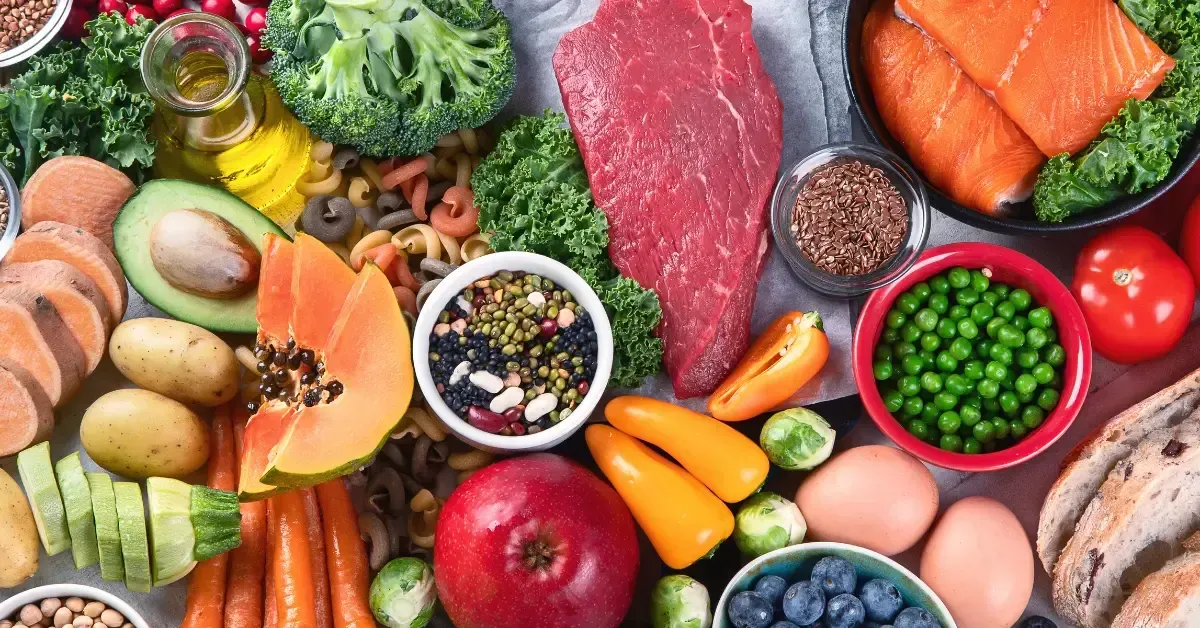
How Nutrition & Food Sensitivities Impact Hormones & Performance | Total Health Pros WV
Introduction
Food does more than provide calories—it sends hormonal signals that influence metabolism, mood and performance. Your diet affects testosterone, thyroid function, cortisol and insulin. Additionally, food sensitivities can trigger inflammation that disrupts hormones and sabotages your workouts. At Total Health Pros, we see the profound impact of nutrition on hormone balance and athletic performance. Here’s how to optimise your diet and identify hidden triggers.
Macronutrients and hormones

Protein: Adequate protein supports muscle growth and satiety. It supplies amino acids needed for hormone production. Aim for 1.2–1.6 g/kg of body weight daily from sources like lean meat, poultry, fish, eggs, beans and lentils.
Fats: Healthy fats are vital for hormone synthesis. Dietary fat provides cholesterol, the precursor to testosterone and cortisol. Include monounsaturated fats (olive oil, avocados), omega‑3 fats (salmon, sardines, walnuts) and saturated fats in moderation (grass‑fed beef, coconut oil). Avoid trans fats and limit processed vegetable oils.
Carbohydrates: Carbs fuel workouts and support thyroid hormone production. Very low‑carb diets can lower T3, causing fatigue and cold intolerance. Choose complex carbs (sweet potatoes, brown rice, quinoa, oats) and fruits.
Micronutrients for hormone balance
Zinc: Essential for testosterone production and immune function. Found in oysters, beef, pumpkin seeds and chickpeas.
Selenium: Supports thyroid conversion of T4 to T3. Brazil nuts, sardines and eggs are good sources.
Iodine: Needed for thyroid hormone synthesis. Seafood, seaweed and iodised salt provide iodine.
Magnesium: Involved in hundreds of enzymatic reactions; assists testosterone production. Found in leafy greens, nuts, seeds and dark chocolate.
Vitamin D: Functions like a hormone and influences testosterone; sun exposure and fatty fish help maintain levels.
Foods that support hormones
Harvard Health highlights certain foods that may boost testosterone levels: onions, oysters, fatty fish containing omega‑3 fats and extra virgin olive oil. Onions and garlic contain compounds that may increase luteinising hormone, which stimulates testosterone production. Oysters are loaded with zinc. Olive oil improves insulin sensitivity and provides monounsaturated fats.
Sugar, refined carbs and alcohol
High sugar intake spikes insulin, which can lower testosterone and increase fat storage. Chronic elevated insulin also leads to leptin resistance, increasing hunger and weight gain. Alcohol disrupts liver function and suppresses testosterone. Limit sweets and processed foods; if you choose alcohol, stick to moderate amounts and avoid sugary mixers.
Food sensitivities and inflammation
Food sensitivities differ from allergies. They involve delayed immune reactions that cause inflammation, digestive issues, headaches, joint pain or fatigue hours to days after eating. Inflammation triggers cortisol release and can impair thyroid function and testosterone production. For example, gluten sensitivity may lead to autoimmune thyroid disease, while dairy sensitivity can cause mucus production and digestive distress. Identifying and eliminating trigger foods reduces inflammation, supports hormone balance and improves energy.
Gut health and hormones
Your gut microbiome influences hormone metabolism. Beneficial bacteria help convert thyroid hormones, produce neurotransmitters like serotonin and regulate estrogen and testosterone through beta‑glucuronidase activity. Dysbiosis (imbalanced gut bacteria) can contribute to estrogen dominance, adrenal fatigue and poor nutrient absorption. Support gut health by eating fiber‑rich foods, fermented foods (yogurt, kimchi, sauerkraut) and prebiotics (onions, garlic, leeks). Avoid excessive antibiotics and manage stress.
Identifying trigger foods
FoodAlign testing: At Total Health Pros we use FoodAlign to identify hidden food sensitivities. This test measures your immune system’s response to various foods. Once triggers are identified, we develop an elimination plan.
Elimination diet: Remove common triggers—gluten, dairy, soy, eggs, nuts—for four to six weeks, then reintroduce them one at a time while monitoring symptoms. Keep a journal to track energy, digestion, mood and performance.
Creating a balanced meal plan

Use our macro calculator to determine your ideal protein, fat and carbohydrate intake based on your goals. Focus on whole foods and include:
Lean proteins (chicken, fish, tofu)
Healthy fats (avocado, olive oil, nuts)
Complex carbs (sweet potatoes, quinoa, oats)
Vegetables and fruits of various colors
Fermented foods for gut health
Stay hydrated and limit caffeine after midday to support sleep quality.
Conclusion
Nutrition profoundly influences hormonal balance and athletic performance. Proper macronutrient ratios, adequate micronutrients, anti‑inflammatory foods and identification of sensitivities can boost testosterone, support thyroid function and balance cortisol. At Total Health Pros, we combine FoodAlign testing, hormone assessments and personalised nutrition coaching to help you reach your goals. If you’re in Hurricane, WV or the surrounding region, schedule a consultation to optimise your diet and hormones.
